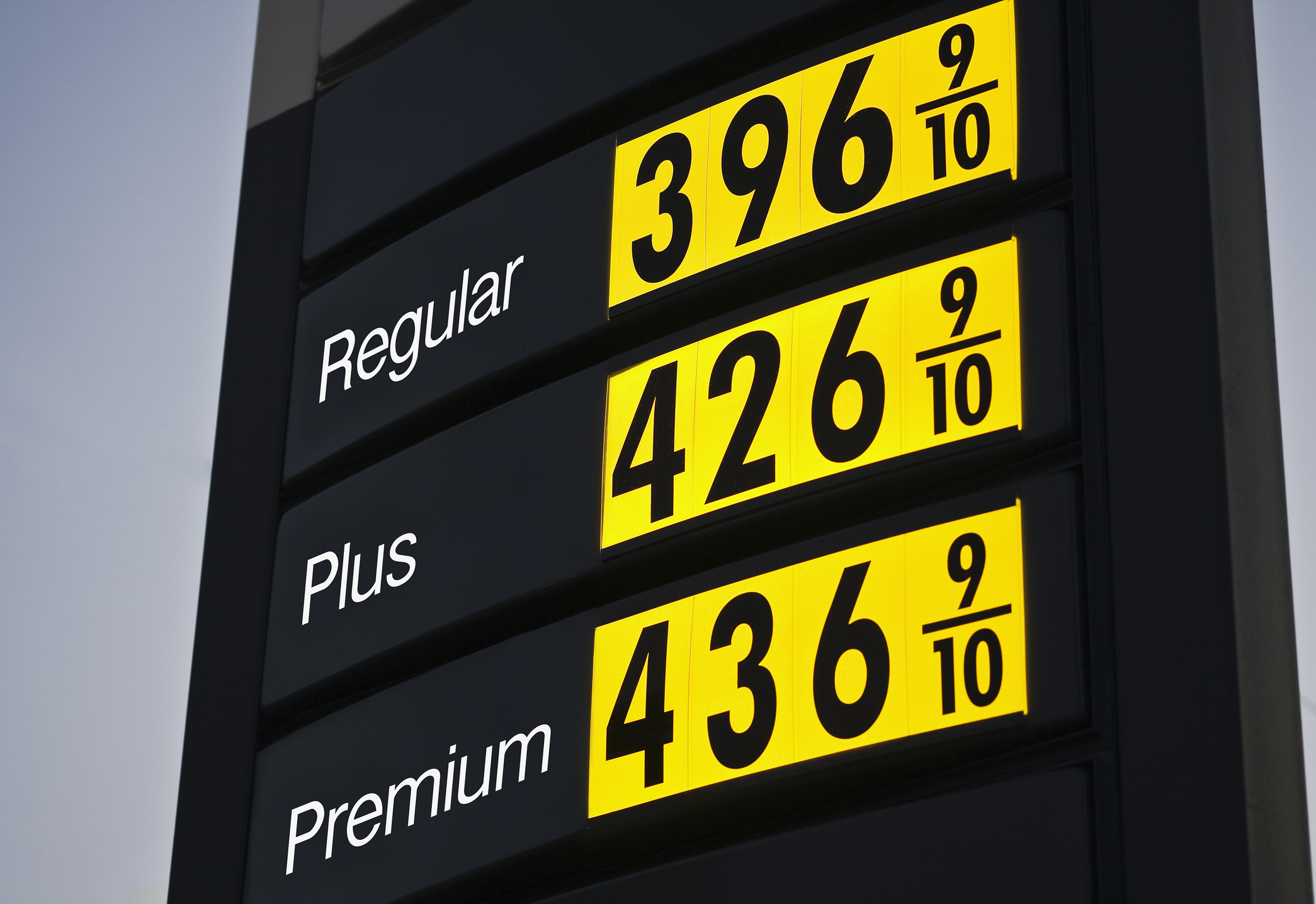Leasing Is Alive and Well
Despite great deals on new cars, leasing is still popular.

Profit and prosper with the best of Kiplinger's advice on investing, taxes, retirement, personal finance and much more. Delivered daily. Enter your email in the box and click Sign Me Up.
You are now subscribed
Your newsletter sign-up was successful
Want to add more newsletters?

Delivered daily
Kiplinger Today
Profit and prosper with the best of Kiplinger's advice on investing, taxes, retirement, personal finance and much more delivered daily. Smart money moves start here.

Sent five days a week
Kiplinger A Step Ahead
Get practical help to make better financial decisions in your everyday life, from spending to savings on top deals.

Delivered daily
Kiplinger Closing Bell
Get today's biggest financial and investing headlines delivered to your inbox every day the U.S. stock market is open.

Sent twice a week
Kiplinger Adviser Intel
Financial pros across the country share best practices and fresh tactics to preserve and grow your wealth.

Delivered weekly
Kiplinger Tax Tips
Trim your federal and state tax bills with practical tax-planning and tax-cutting strategies.

Sent twice a week
Kiplinger Retirement Tips
Your twice-a-week guide to planning and enjoying a financially secure and richly rewarding retirement

Sent bimonthly.
Kiplinger Adviser Angle
Insights for advisers, wealth managers and other financial professionals.

Sent twice a week
Kiplinger Investing Weekly
Your twice-a-week roundup of promising stocks, funds, companies and industries you should consider, ones you should avoid, and why.

Sent weekly for six weeks
Kiplinger Invest for Retirement
Your step-by-step six-part series on how to invest for retirement, from devising a successful strategy to exactly which investments to choose.
To paraphrase Mark Twain, reports of leasing's death are greatly exaggerated. Even while auto sales hover at depressed levels not seen since the recession of the early 1980s, the major leasing players -- luxury carmakers -- are still writing leases. Some, including Acura, BMW and Mercedes-Benz, are even throwing money into the deals to lower monthly payments.
Banks and carmakers retreated from leasing last year after truck and SUV sales cratered due to soaring gas prices. Gas guzzlers languished on dealers' lots and owners tried to dump them, which decimated their resale value. Financial institutions that had written truck leases -- mainly the financing arms of the Detroit automakers -- lost a bundle when leasers turned the vehicles in. As a result, General Motors and Ford put the brakes on SUV and pick-up leases, and Chrysler is no longer writing leases at all.
Pros of leasing. Although the game has changed a bit, much about leasing is the same, says Tarry Shebesta, president of LeaseCompare.com. Leasing still makes sense if you trade in every few years and always have a car payment. You get all the perks of driving a new car but, because you pay only for the depreciation during the time you lease the vehicle, you also get lower payments than if you had bought and financed it. And with most lease terms, the new-car warranty never expires. That's why luxury cars (and until recently, pricey SUVs and pickups) are leased so often.
From just $107.88 $24.99 for Kiplinger Personal Finance
Become a smarter, better informed investor. Subscribe from just $107.88 $24.99, plus get up to 4 Special Issues

Sign up for Kiplinger’s Free Newsletters
Profit and prosper with the best of expert advice on investing, taxes, retirement, personal finance and more - straight to your e-mail.
Profit and prosper with the best of expert advice - straight to your e-mail.
You also have the ability to ride out economic turmoil of the sort that rocked leasing last summer. For example, owners of trucks and SUVs had to eat the loss in value of their vehicles when they traded them in. But if you leased, the bank (or the carmaker's financing arm) took the resale-value hit, not you.
Digging for a deal. Before you can spot a bargain, you need to understand leasing jargon. Residual value (or resale value) is what the vehicle is expected to be worth at the end of the lease and is the same as, or close to, the purchase price you'd pay then. Money factor is the interest you'll pay. You multiply that number by 2,400 to get an estimate of the annual percentage rate. Capitalized cost is the price of the car.
As carmakers struggle to move vehicles, you'll see more leasing incentives -- known as subventing. A subvented lease may feature an artificially low money factor or an inflated residual value, both of which lower your monthly payments. Shebesta notes that when you compare lease terms, you may find that a high residual value and a high money factor could produce the same payment as a low residual and a low money factor. The latter is a much better deal because you'll end up with a more realistic value, meaning you'll pay less if you decide to buy the car.
Choosing a high residual value to lower monthly payments might be worth it if you plan to turn in the car at the end of the lease. But because you're not paying enough each month to keep up with the actual depreciation, you'll pay a few grand more than market value if you want to buy it. And if you have to turn in the car before the lease is up, you'll owe a bundle in addition to the early-termination fee.
Before you hit the dealers, pit the carmakers' lease terms against leases from independent leasing com-panies and banks at Lease-Compare.com to find different options. For example, Honda Financial recently offered a 36-month lease on a base-level Acura TL (price: $35,715) for $399 a month. It assumes a residual value of $22,143, which is also the purchase price. Running the same numbers on LeaseCompare.com, we found a three-year lease on the TL for $464 a month with a purchase price of $20,708.
Plus, the LeaseCompare deal allows 12,000 miles a year, compared with 10,000 miles from Honda Financial (with a 20-cent-per-mile penalty on additional miles). If you drive the extra 6,000 miles over three years, the LeaseCompare deal saves $1,200 on mileage.
Profit and prosper with the best of Kiplinger's advice on investing, taxes, retirement, personal finance and much more. Delivered daily. Enter your email in the box and click Sign Me Up.

-
 How Much It Costs to Host a Super Bowl Party in 2026
How Much It Costs to Host a Super Bowl Party in 2026Hosting a Super Bowl party in 2026 could cost you. Here's a breakdown of food, drink and entertainment costs — plus ways to save.
-
 3 Reasons to Use a 5-Year CD As You Approach Retirement
3 Reasons to Use a 5-Year CD As You Approach RetirementA five-year CD can help you reach other milestones as you approach retirement.
-
 Your Adult Kids Are Doing Fine. Is It Time To Spend Some of Their Inheritance?
Your Adult Kids Are Doing Fine. Is It Time To Spend Some of Their Inheritance?If your kids are successful, do they need an inheritance? Ask yourself these four questions before passing down another dollar.
-
 10 Things You Should Know About Buying a Car Today, Even if You've Bought Before
10 Things You Should Know About Buying a Car Today, Even if You've Bought BeforeIf buying a car is on your to-do list, and it's been a while since you went shopping for a new one, this guide will help avoid any nasty shocks in the showroom.
-
 Get the Best Car Deal in Retirement: Here's the Trick
Get the Best Car Deal in Retirement: Here's the TrickPlanning on shopping for a new car this Labor Day weekend? Here’s how to haggle for a better price, even though you're retired.
-
 7 Gas-Saving Tips That Actually Work
7 Gas-Saving Tips That Actually WorkThese are gas-saving tips that will actually work for you and your car this year.
-
 Want to Lease an EV? The Tax Credit 'Loophole' for That Is Going Away Soon
Want to Lease an EV? The Tax Credit 'Loophole' for That Is Going Away SoonTax Credits If you are deciding whether to lease or buy an electric vehicle, here is what you need to know about how the EV lease tax credit works now that it will be eliminated under Trump's new tax law.
-
 Car Buying in a Topsy-Turvy Market
Car Buying in a Topsy-Turvy MarketYou need a new car? Good luck with that! What should you do? We've got some answers.
-
 Watch Out for Flood-Damaged Cars from Hurricane Ian
Watch Out for Flood-Damaged Cars from Hurricane IanBuying & Leasing a Car In the wake of Hurricane Ian, more flood-damaged cars may hit the market. Car prices may rise further because of increased demand as well.
-
 Car Buyers: The 3-Day Grace Period Is Just a Myth!
Car Buyers: The 3-Day Grace Period Is Just a Myth!Buying & Leasing a Car Many car buyers think they have three days after making a purchase to return a car. Here’s where they’re going wrong, and what they should do instead to get a decent used car.
-
 PODCAST: Car-Buying in an Inflated Market with Jenni Newman
PODCAST: Car-Buying in an Inflated Market with Jenni NewmanBuying & Leasing a Car With cars both scarce and expensive these days, what to do if you want – or need – a new ride? Car-buying strategist Jenni Newman of Cars.com shares some tips. Also, more on the magical 9% savings bond.